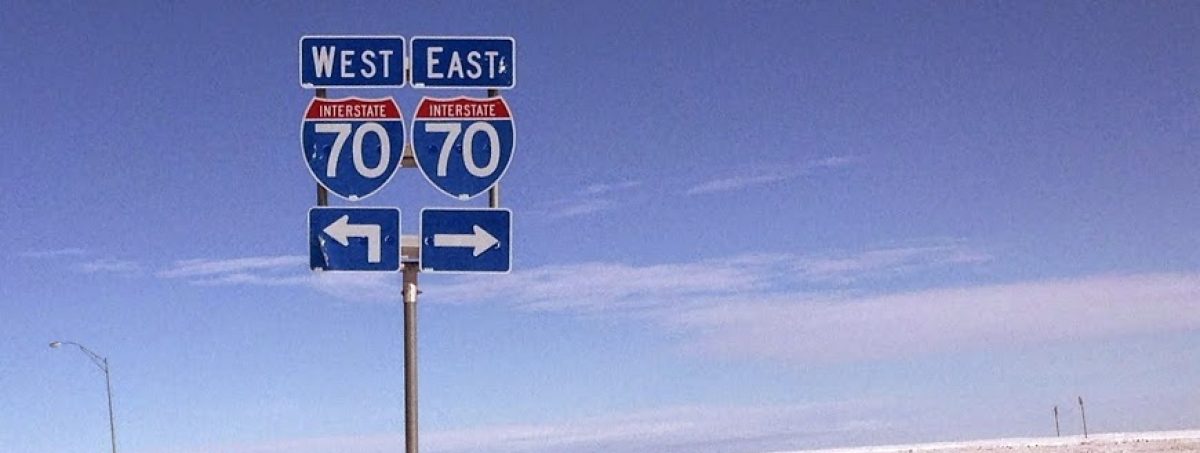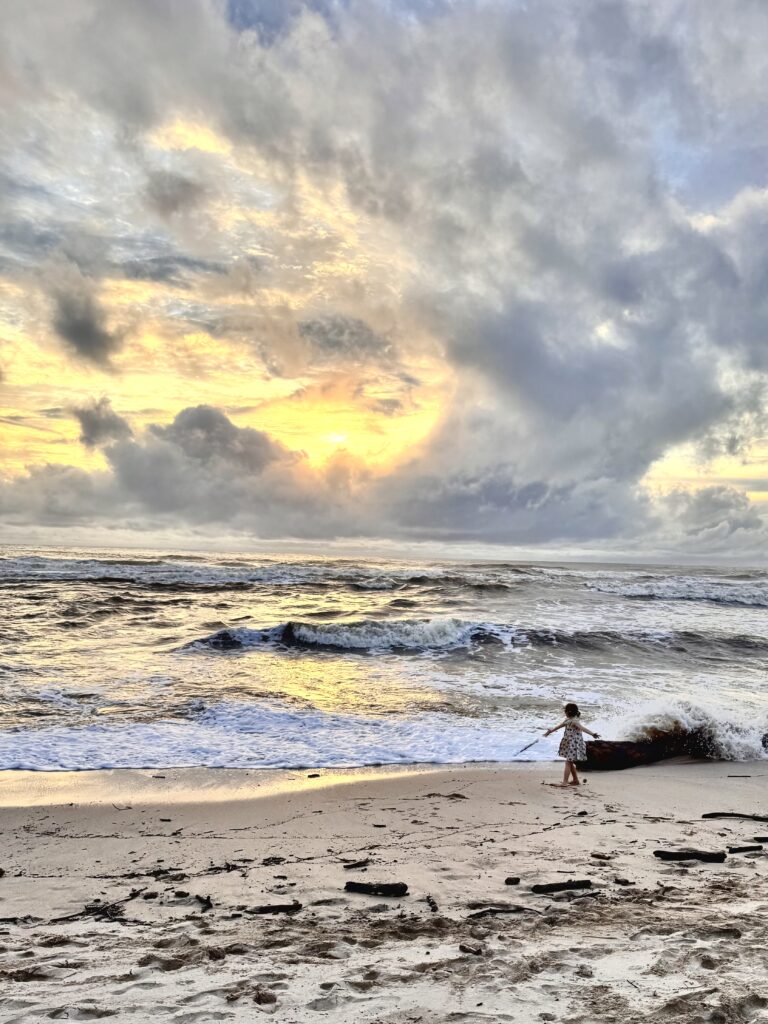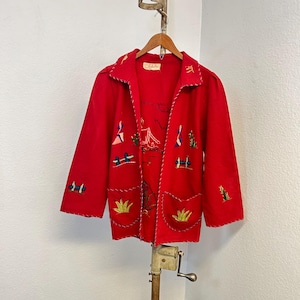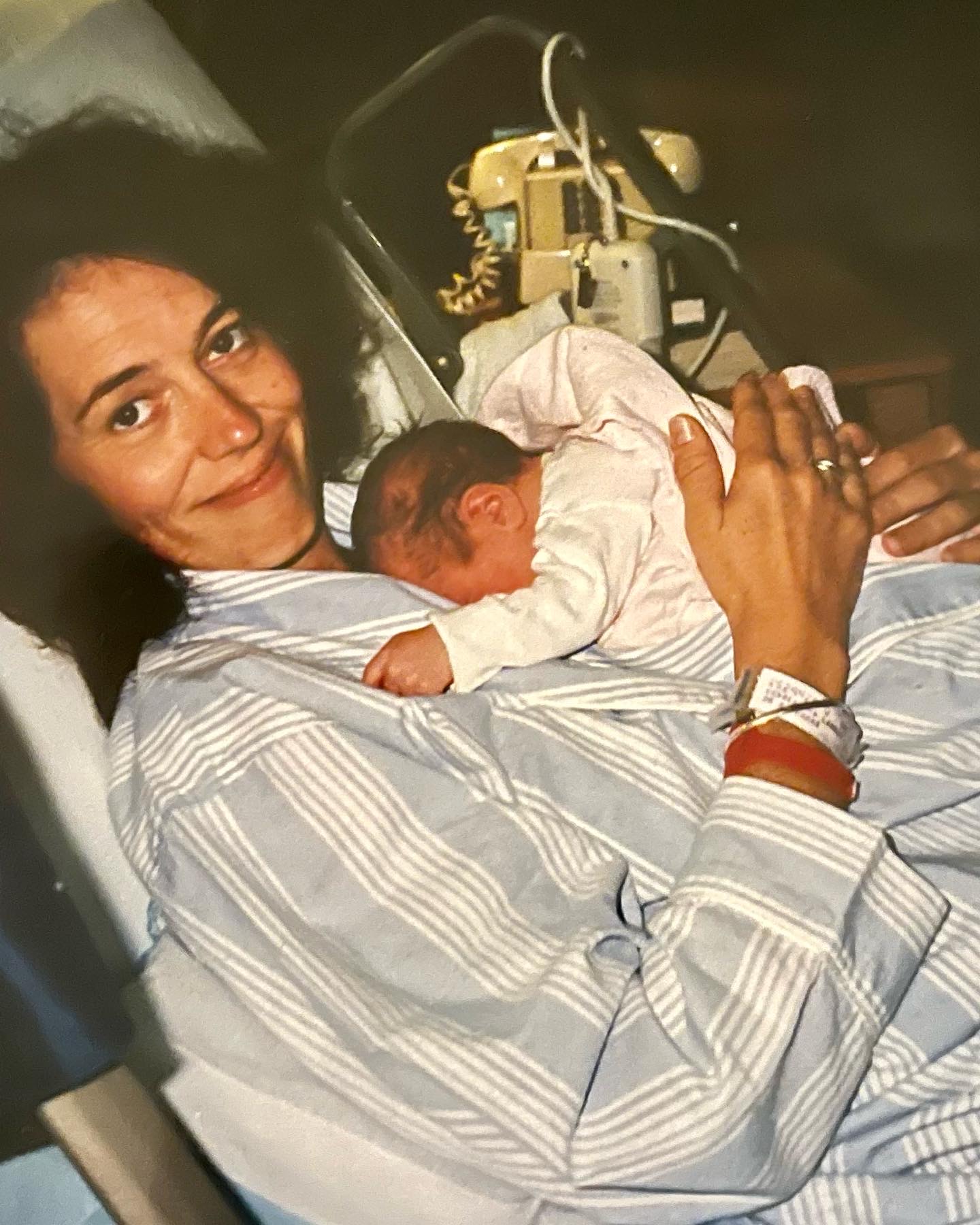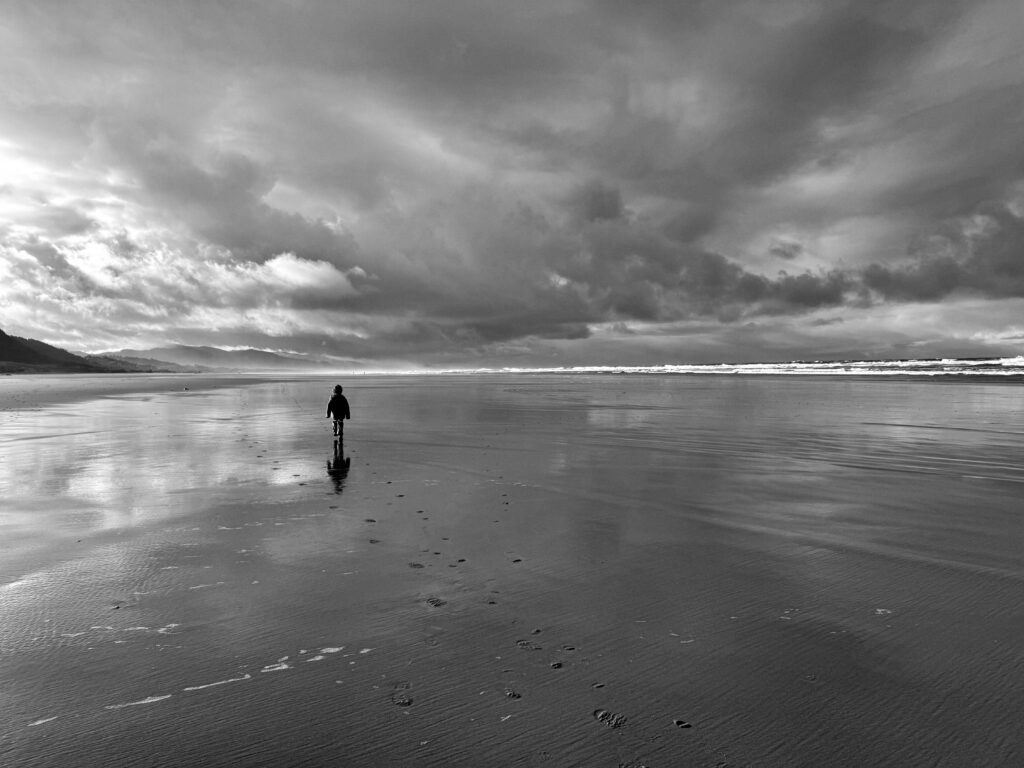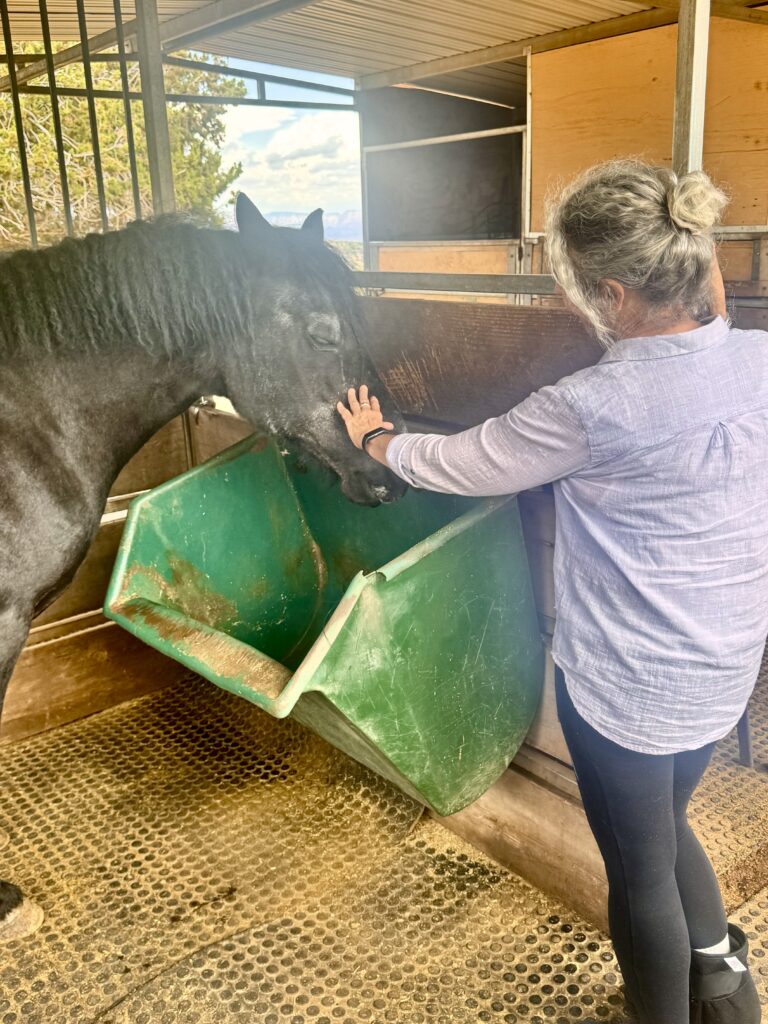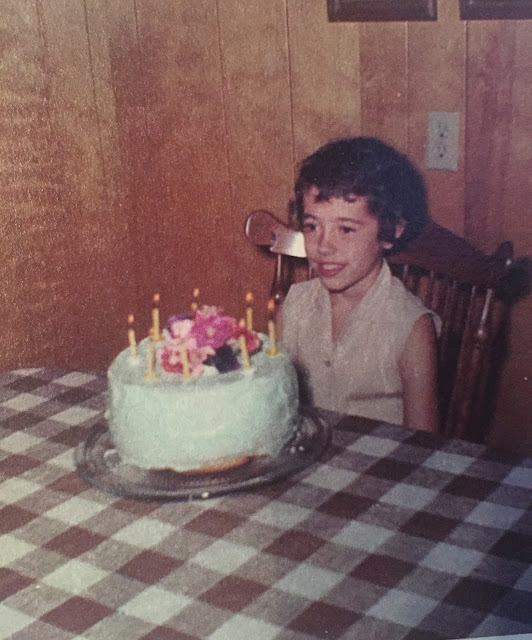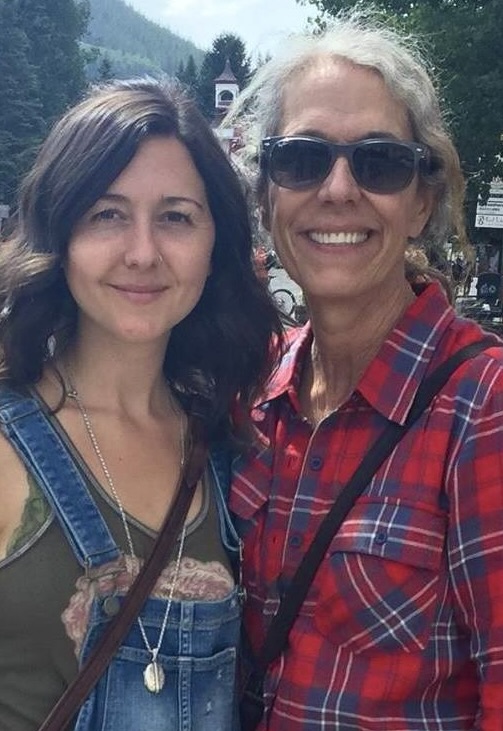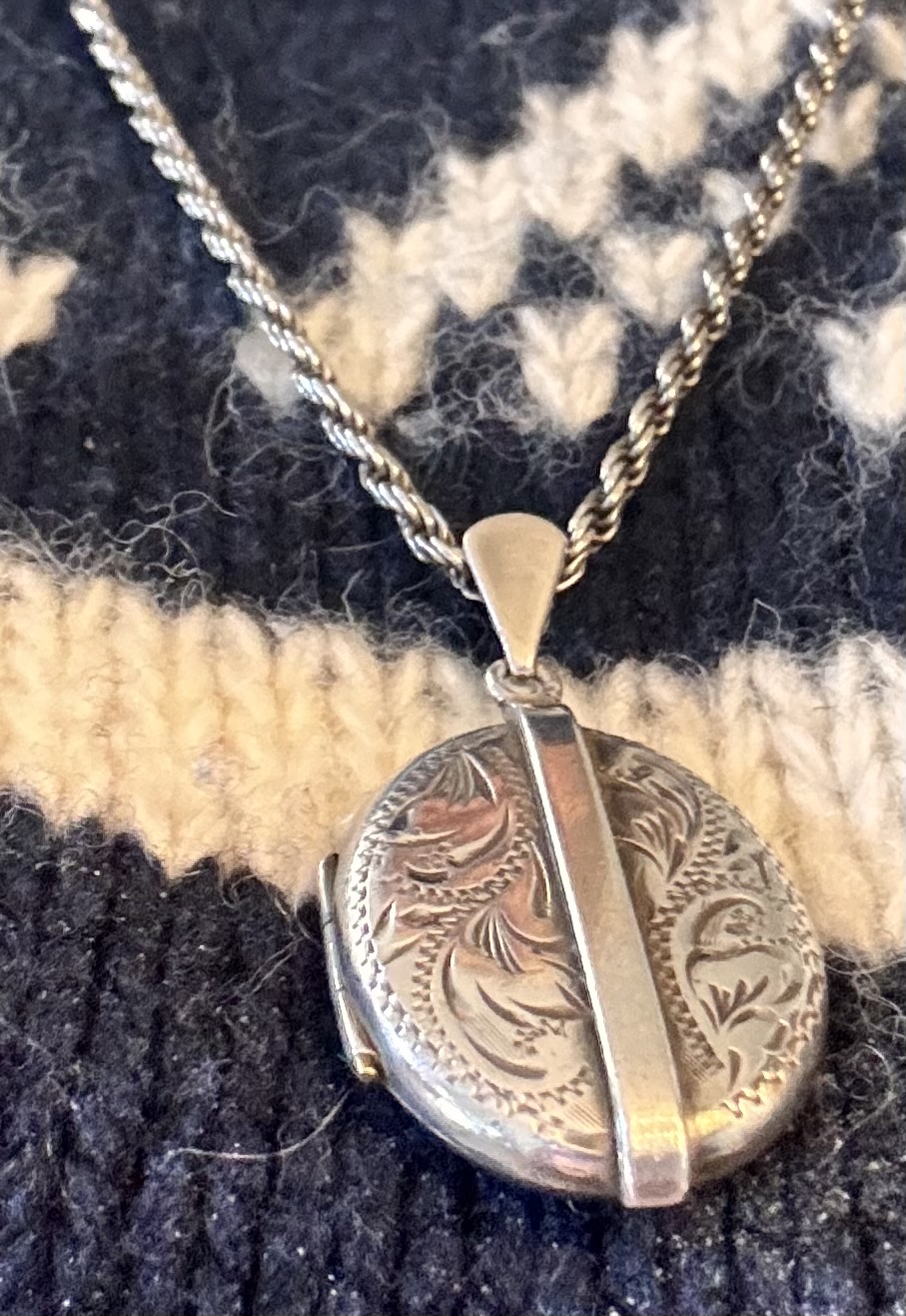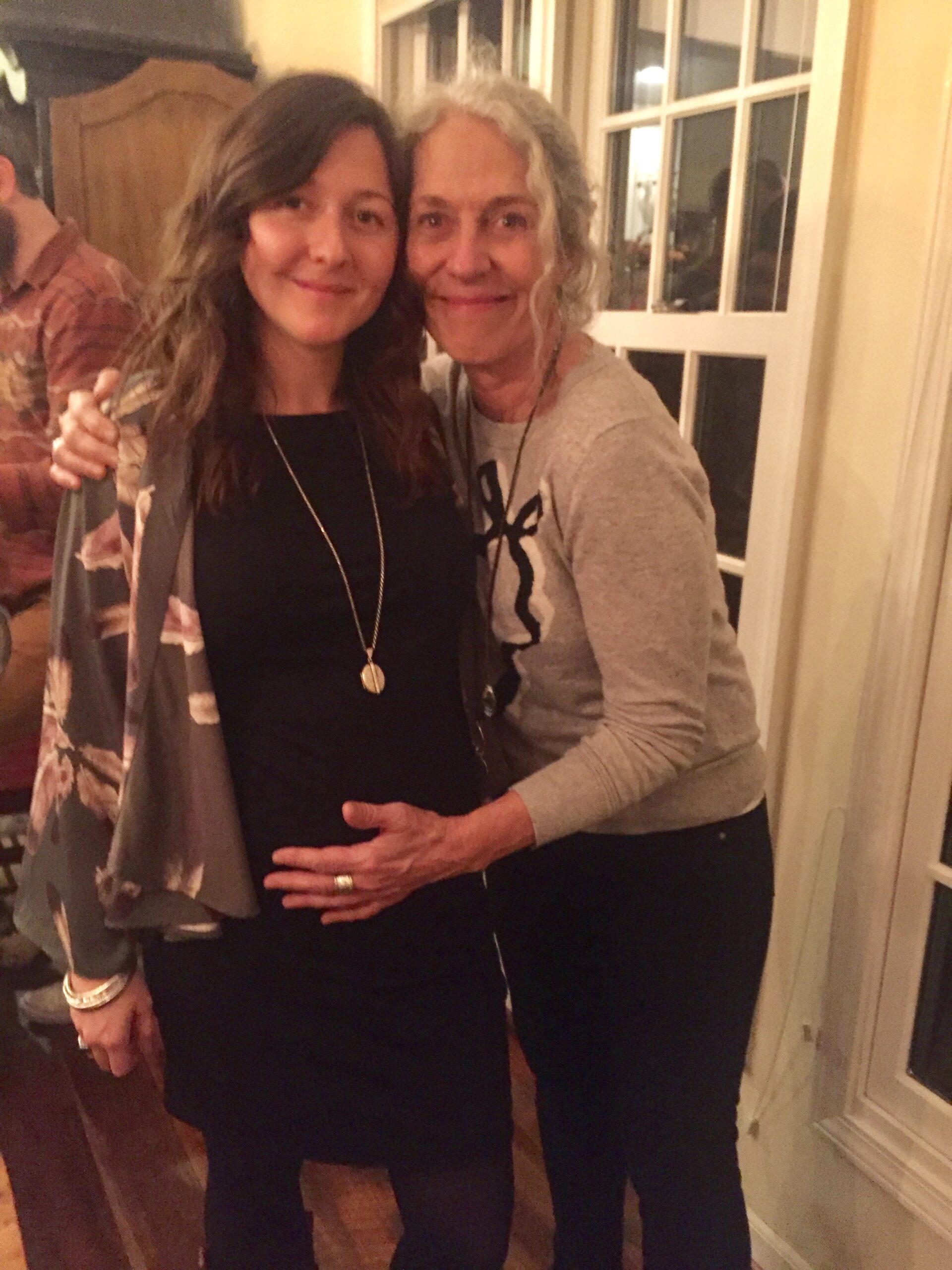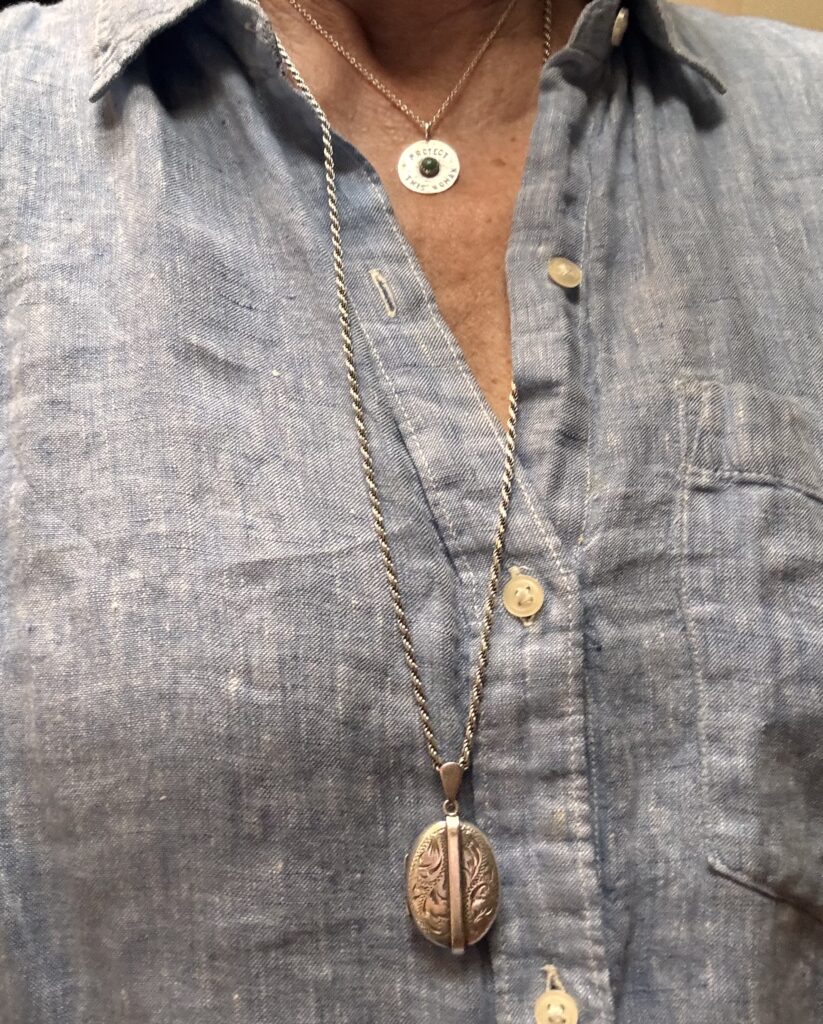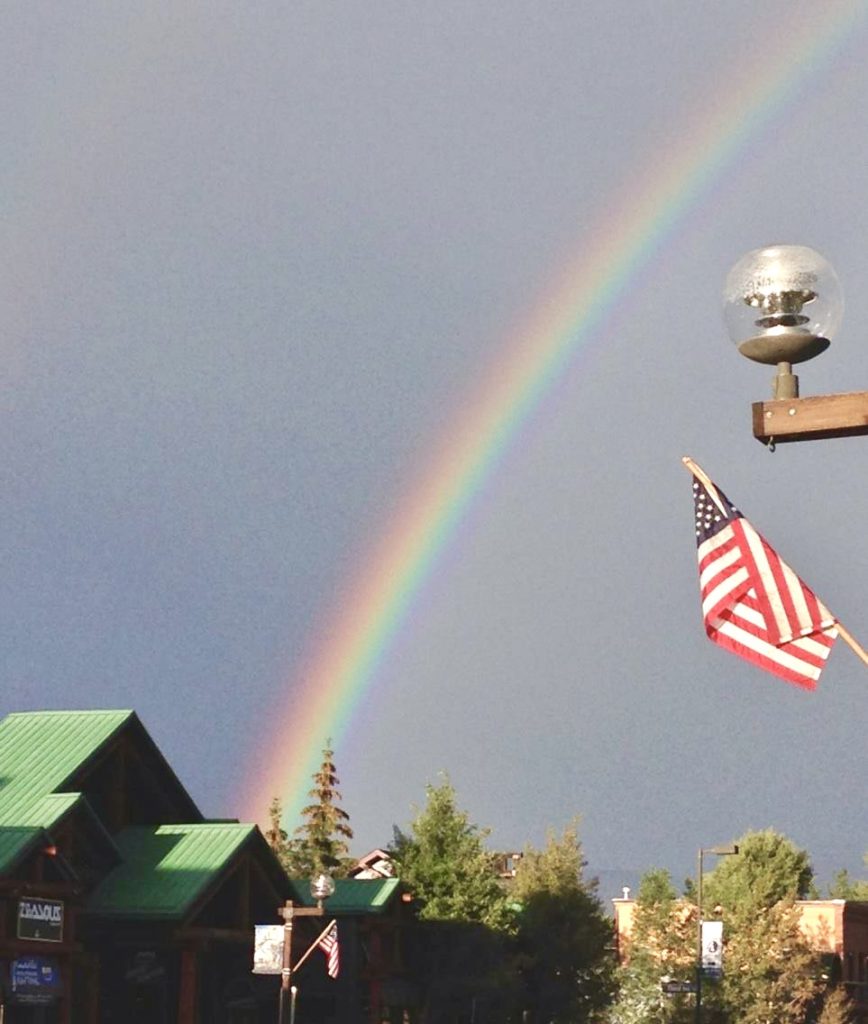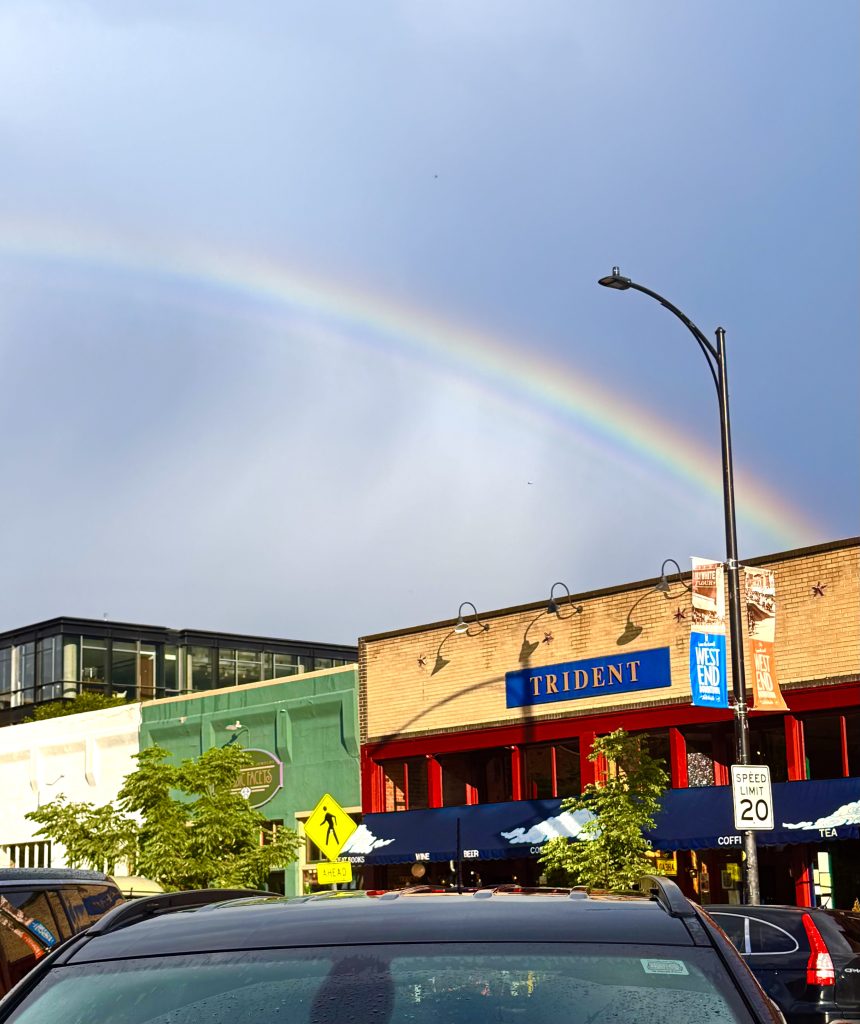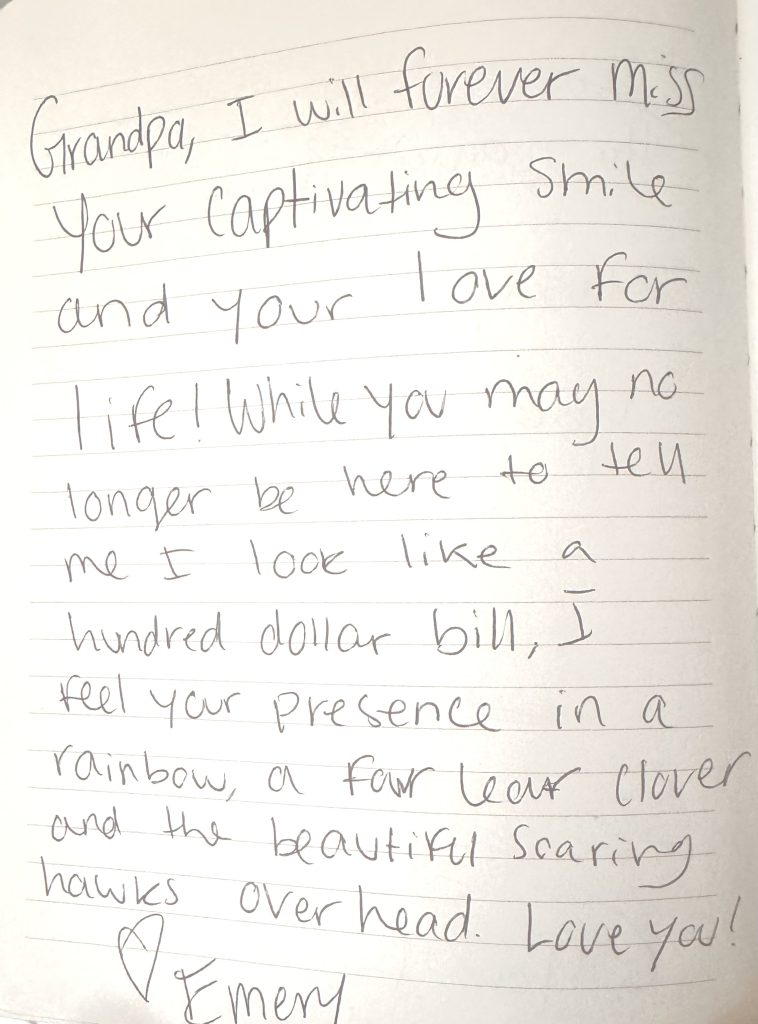*an edited essay originally written in 2016
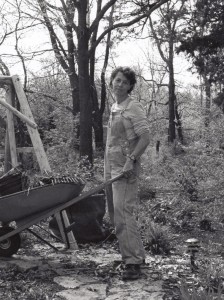
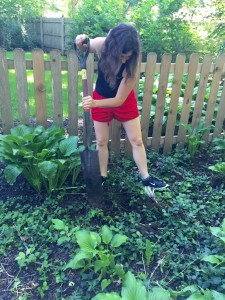
Mother/Daughter and our shared love of digging in the dirt
My daughter is learning how to be a farmer. The same daughter who didn’t hide her disdain for my reaction of delight to my Mother’s Day gift of a rototiller when she was five. Emery had not been consulted, and she was not pleased. She asked me why I couldn’t want stuff like the “other” moms wanted for Mother’s Day, like jewelry or perfume or makeup. I’m not sure if any of my mom friends wanted makeup for Mother’s Day, but I understood what she was asking me. Clad in overalls, work boots, and an embarrassing amount of dirt under my fingernails, I gave myself a sweeping gesture with the arm that wasn’t holding the shovel and asked her jokingly, “Do I look like the kind of person who would ask for makeup for a gift?” At the same time, I understood what she was saying, with her emphasis on, like the other moms. She just hadn’t seen the other moms in their more casual element. I’m sure they also had days they wore slippers to the grocery store because they were faster to put on. Without naming names, I could name one.
Out of my three children, it was Emery who spent the most time with me in my gardens. This was partly because she didn’t have a lot of say in the matter, as most of our days were spent at home, and there was always something that needed to be taken care of in the garden. Emery was the one who would follow behind me on the flagstone paths I had laid, asking me the names of the flowers and shrubs. I told her the Latin names because, after working at a garden center where we were required to use them, it had become a habit for me. I had no idea she was really listening to my answers.
While still in kindergarten, Emery referred to most of my shrubs and several of the perennials by their Latin names. This is not a typical thing for a kindergartner to do, but she had done it for so long that it became normal. While discussing the spirea bushes, Emery would ask which ones I was referring to— the Vanhouttes or the Japonicas? She preferred the Vanhouttes as they reminded her of a fountain with white water and thought the Japonicas (princess spirea) were “show-offs.” She was right. They were.
When Emery was in kindergarten, my flower garden became very important to her because, unbeknownst to me, my clever little girl was hatching a plan. Her teacher, whom she loved dearly, tutored kids in the summer in areas where they needed extra help. Emery wanted more help in reading, but I think what she really wanted was more time with her teacher, whom she adored. Emery wanted their lessons to take place on the swing in the garden, because “it was the nicest view we had.”
After a few visits with Miss L, Emery began referring to my garden as the Garden of Love. She decided it would be the location for Miss L’s wedding. Miss L wasn’t dating anyone at the time, or at least that I was aware of, and when I mentioned that to Emery, she didn’t seem overly concerned; instead, she asked where the best spot would be for her to stand when the photographer came to take pictures, and did I have the phone number for the newspaper? (This was in 1996, when most people had daily delivery of the local newspaper.) I told her under the arch, definitely under the rose-covered arch. She had sucked me right into her plan, and I was an eager participant, scheming for a bride who didn’t yet have a groom. She was specific about all the details… who to invite, what she would wear (her second decision after the location), the music and the cake, which would be the only food served at the wedding—yet still, no mention of a groom. The only single man Emery knew was her Uncle Bill, who lived in Seattle, and at one point, she mentioned that he would probably be the groom. Minor details.
The wedding plans faded as Emery moved into first grade, but once again, she became obsessed with her teacher, who looked like Snow White, but who already had her prince.
We did not have a wedding in our garden of love that summer, but several years later, I attended Miss L’s wedding with Emery. As we watched her exchange her vows, Emery looked at me, and without words, I knew exactly what she was thinking—the garden of love and the arch of roses. And yes, it would have been beautiful.
Emery’s take on the beautiful corner of the yard had me seeing it differently, whether weeding, spreading compost, planting, or simply sitting on the swing and enjoying it. It truly was a garden of love; regardless of if a wedding was taking place there or not, love was always present.
Similar seeds for a love of working the earth had been planted for me when I was about the same age Emery had been when she first took an interest in my garden. I spent a lot of time at my grandparents’ house in the summer, where my Papa spent his days gardening in his expansive garden behind their house. I marveled at the bounty he’d bring into the kitchen at the end of the day and was eager to try new foods I had never tried before, such as okra, turnips, and hominy, all of which my mom would never cook or eat. It was my Papa who showed me the magic of planting a seed in the ground, and after a little bit of work and what seemed like a very long time, it would grow into something that could be eaten. That was nothing short of a miracle for me.
A few years later, I planted my own garden—a small, weedy patch in the back corner of our yard, where I planted a handful of watermelon seeds. Much to my surprise, it worked, and the shiny black oval seeds grew into watermelons that looked just like the ones on the front of the seed packet. While tending my little weedy patch of a garden, I discovered a large watermelon hidden behind a tangle of vines and weeds that looked ready to be picked. I sat down, broke it open, and enjoyed the fruits of my labor. It wasn’t cold or sliced, but it was the best watermelon I had ever eaten. I ate the whole watermelon, its juice running down my chin to my chest while I buried my face in the warm pink fruit, pausing only to spit the seeds out. Digging in the dirt was in my genes, and I’m proud to claim that it has become a part of my daughter’s genetic makeup as well.
Emery and her husband, Miles, recently purchased acreage outside of Ft Collins, Colorado, and are learning how to be permaculture farmers. Along with chickens and bees, they will also be raising goats. When Emery was young, we spent a lot of time at the petting farm near our house, and the goat pen was always her favorite. She’d talk to the goats as if she were their mother—scolding, praising, and trying to teach the aggressive ones manners. Fast forward twenty years, and Emery has found her goats again. The same little girl who was deathly afraid of silver fish had no problem taking on a pen full of rambunctious goats, while I kept a safe distance on the other side of the gate.
A few nights ago, Emery texted me from Taos, where she and Miles were at a workshop for permaculture farming.
“I got my spirit from you, Mom.”
I read those words, paused, then reread them. I didn’t want to stop reading them. It’s beautiful to see yourself in your kids, and even more beautiful when they see themselves in you.
To you, Emery, who at one point wished for makeup, not rototillers, for me, along with manicured hands, but at the same time, insisted on spending time in my Garden of Love, because it was the best view we had. I loved sharing my love for gardening with you, but now it’s your turn. Now I get to follow you as we walk your land, and you point out all the plants you and Miles have put into the ground, along with the many gifts Mother Nature has planted before you. Keep digging into the rocky Colorado dirt, my beautiful girl, and you’ll find treasures that you never imagined…the biggest one being yourself.
